Arab Rural Women in Vicious Cycle of Poverty, Marginalization and Social Fragility

Poverty, disease, early and forced marriage, unsafe transportation and rickety roads, lack of health coverage and social insurance, cheap and/or unpaid labor, lack of sanitation, and illiteracy. All of them are broad titles for the common problems that women suffer in rural areas in Arab countries, in addition to many, many discriminatory patriarchal norms and practices.
On October 15 of each year, the International Rural Women’s Day is celebrated as a form of recognition of their crucial role in promoting agricultural and rural development, improving food security, eradicating poverty, and shedding light on the violations they are exposed to.
Across the world, women make up a large proportion of the agricultural workforce, including in the informal sector. In addition, they assume the bulk of unpaid care and household chores in rural areas.
Despite this, they suffer from poverty in all its forms to a greater extent than women in urban areas, according to the United Nations, as rural women represent a quarter of the world’s population.
But, the percentage of female agricultural land owners is less than 20%.
The wage gap in rural areas is as high as 40%.
Knowing that United Nations experts believe that if rural women were given the same opportunities as men, agricultural production could be increased and the number of hungry people reduced by 100 to 150 million.
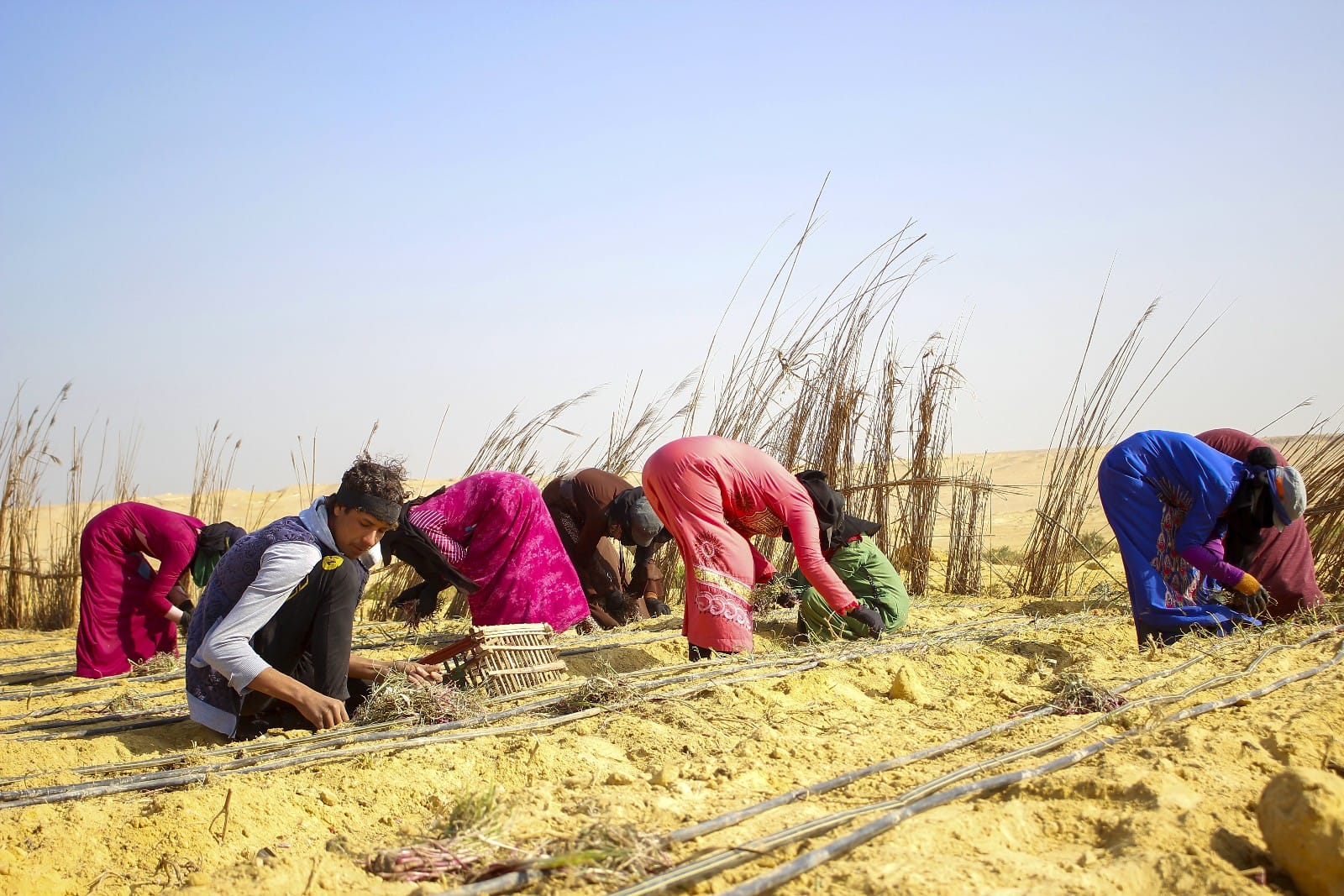
Rural Arab women are in dire circumstances on all levels
On the Arab level, rural women are the backbone of the agricultural sector.
They represent more than 60% of the labor force in it, according to the Arab Organization for Agricultural Development, which confirms that the majority of women work in seasonal agriculture for low wages, or work without material compensation on family farms.
The organization pointed out that there are many constraints (challenges) of a social, economic, cultural and structural nature that women face in Arab rural areas, including the high rate of illiteracy, lack of infrastructure and facilities, the absence of neighborhood services such as those related to child and elderly care, the lack of decent work opportunities and the lack of participation in decision making.
The organization also stressed that these challenges hinder the access of these women in the Arab region to information and their access to knowledge and specialized technical qualifications, but also prevent them from obtaining means of production, modern technologies, and financial and professional services.
It also prevents them from accessing profitable trade routes, which leads to overburdening them and limiting the returns of their work, and keeps most of them in the cycle of poverty, marginalization and social vulnerability.
One of the problems facing rural women in our region is the discriminatory male norms and practices that impede their ownership of agricultural lands.
Women represent less than 5% of agricultural holders in the Near East and North Africa region, according to a 2018 Food and Agriculture Organization report.
The report revealed that the percentage of women owners of agricultural property in Tunisia, for example, does not exceed 6.4%, and in Morocco it is 4.4%. While it does not exceed 4.1% in Algeria, 4% in Egypt and 3% in Jordan. Even for those who own agricultural holdings, 75% of them own small farms.
There are no notable exceptions to the many obstacles faced by rural women in Arab countries.
For example, in Tunisia, which maintains a reputation as a pioneer in the field of women’s rights, official figures state that 32% of Tunisian women live in rural areas. They make up 70% of the workforce in the agricultural sector. But their wages are half that of their male counterparts. The daily wage for women ranges between 3 and 6 dollars, compared to 6 to 10 dollars for men.
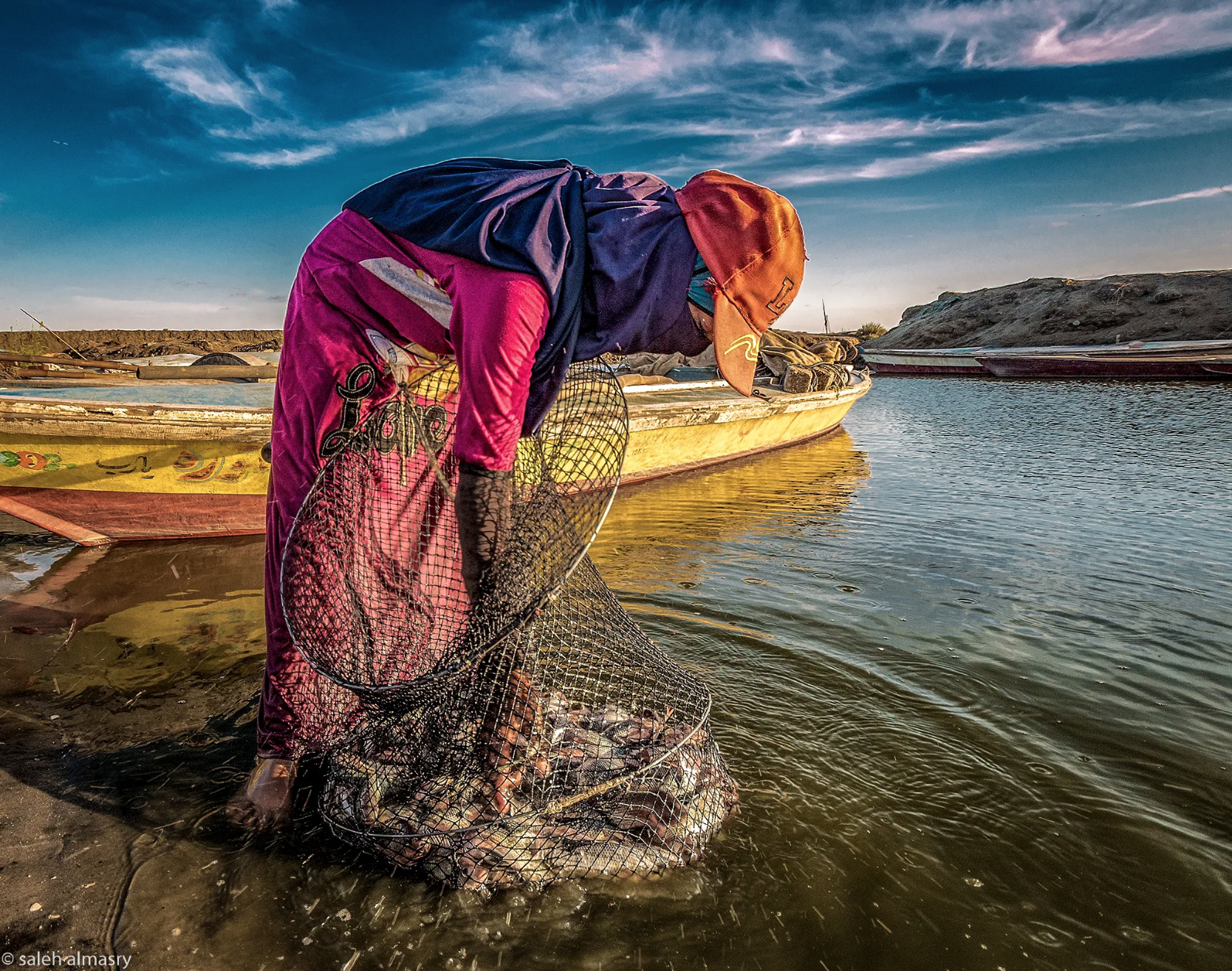
Egyptian female farm hands suffer “more violence” and “systematic discrimination”
In Egypt, where the percentage of girls and women in rural areas is 57.1%, or about 27.4 million people, the situation of rural women is not better.
The percentage of Egyptian women who work in the agricultural sector is 30.1%, and the illiteracy rate among them rises to 38.9%. While only 13.4% of them benefit from social insurance services, and 47.3% of them receive health insurance.
The largest percentage of rural women work in the private sector outside establishments. Their percentage is 46.5%, and 38.8% of them work in professions related to agriculture.
These figures were issued by the Central Agency for Public Mobilization and Statistics, the official body for statistics in Egypt, in the publication of “Population Magazine. The status of rural women in Egypt. Golden Jubilee.” A copy of it was obtained by the “Sharika Walaken” website from the agency itself.
The 2019 bulletin described the country’s rural women as “the most vulnerable group”.
It highlighted that they suffer discrimination compared to rural men and urban women and men.
The bulletin asserted that they face systemic discrimination in accessing land and natural resources. They bear the burden of unpaid work due to stereotypical gender roles, inequality within the household and lack of infrastructure and services.
They are also less likely to be educated, and exposed to greater risks such as becoming victims of human trafficking, forced labor, and early or forced marriage.
It also explained that rural women are more affected than others by violence in all its forms and do not have access to justice and effective legal remedies.
“I got sick and the pay is no longer enough for treatment.”
For more than 35 years, Awatif (50 years old) has been working in agricultural lands, initially on family land, without pay. She then moved to paid work on the lands after marriage to help her husband with the living costs.
At 15 years old, she started going regularly with her mother, grandmother and the men of the family to work on a plot of land that they owned.
After marriage, she and her husband became paid farmers, according to what she told the “Sharika Walaken” website.
She added with a sigh: “I gave birth to three children, two girls and a boy, whom I used to take to work with me when they were young, in the cold and heat. I had no other choice.”
But, a few months ago she was forced to stop working due to her illness. She has been complaining for years of neck, back and knee pain. She recounted to our site that she was “lazy about going to the doctor for a long time, because the salary is not sufficient for my treatment expenses. In the end, I could no longer bear the pain, so I went and continued treatment.”
Noting that she does not receive any pension or social or health insurance, after all these years of hard work.
But, she explained that “the doctor assured me that what I am suffering from is the effects and the direct result of the hardship of work and not giving my body an opportunity to rest in the hustle and bustle of work on the land and at home. In the end, the drugs were no longer effective, the pain became unbearable, and the wages were no longer sufficient to cover the treatment alone. My husband said it would be better for me to stay at home, so I did.”
Awatif’s three children are now married, and she is still working with her husband to support themselves, amidst harsh and stressful conditions. In her conversation with us, she summarized her daily suffering, saying: “I work day and night. I wake up every day at three in the morning. I clean my house, cook, and then go out with my husband to work at five. Sometimes our day is from six in the morning until five in the afternoon, or half the day, that is, from seven in the morning, for example, until two in the afternoon.”
She added: “When we get home, my husband takes a shower and sits down to rest. While I prepare the food, clean the house, do the laundry and then sleep about six hours before doing it all again the next day.”
And about the wages she receives, she explained that at the beginning of her work she used to earn 10 Egyptian pounds (less than one dollar) for a full day’s work. And before she stopped working, she was paid 100 pounds (about 6 dollars) for a full day of work or 50 pounds (3 dollars) for half a day.
Five years before she stopped working, Awatif, in addition to her work in the lands, was a “people contractor,” that is, responsible for gathering women and sometimes men to work in the fields.
She emphasized that “farm owners prefer women in farming and harvesting work because they consider that they work conscientiously and strive to get the work done quickly, while many men currently work according to their mood and often prefer to sit in cafes.”
She also pointed out that she “encountered men who feel ashamed of working in the fields for pay or as migrant workers, and they send their women in exchange for this work.”
In this context, it should be noted that the word “migrant worker” is an insult used by men in some rural areas.
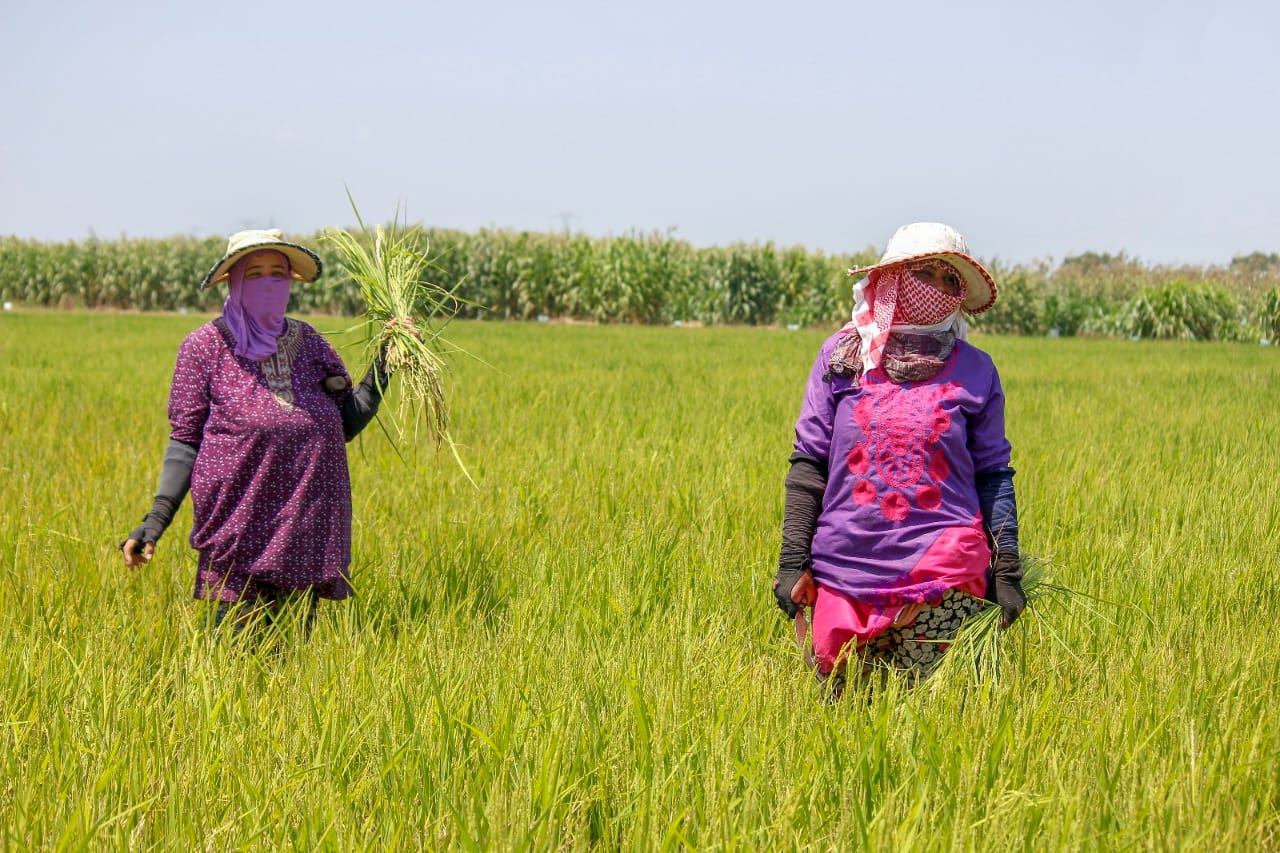
“Corona impoverished me, and the government canceled my pension.”
“I have three daughters of marriage age. I can’t marry them off. And when any groom proposes to one of them, I refuse him, not for a fault in him, but because I cannot afford the costs of preparing any of them for marriage.” With these words, Yusriya, 44, began her interview with our website.
In a desperate tone, she complained about the difficult conditions of life in which she lived. “The roads are unpaved, and our bones break every day as we move around in rickety carts (donkey or horse-drawn carts) or in the rickety box of a semi-truck.”
As for her house, she does not have proper sanitation, the roof of the modest house in which she lives is about to collapse, and a lot of water collects under the house which requires regular removal. In light of the continuous rise in water and electricity bills and the prices of food commodities.
Yusriya used to receive a government “Solidarity and Dignity” pension (Takaful Wa Karama) of 530 Egyptian pounds (about 34 dollars), but it was suddenly cut off and she was informed that she was “not entitled” to it. She asked in anger: “Why do I not deserve it when I support three girls, and their father is unemployed? Why don’t they come and see for themselves my crumbling house and its roof, which is gradually falling over our heads?”
The forty-year-old woman was infected with the Coronavirus months ago, and her condition deteriorated greatly, so she spent 10 thousand Egyptian pounds on treatment, equivalent to 640 dollars.
She confirmed that she had to borrow most of the amount from acquaintances and relatives, and she is still unable to repay the debt.
She said sadly: “I sold golden earrings that were a gift to my daughter from her grandfather. But what would I do? Where do I get the money from? And after all this, I don’t deserve a pension. Corona has impoverished me, and the government has canceled my pension. How do I and my daughters survive?”
The spread of Corona did not affect Yusriya alone. According to the Food and Agriculture Organization of the United Nations (FAO), the pandemic contributed to the emergence of new barriers for rural women and girls and their leadership, and their agricultural activities were affected to a greater extent compared to their male counterparts.
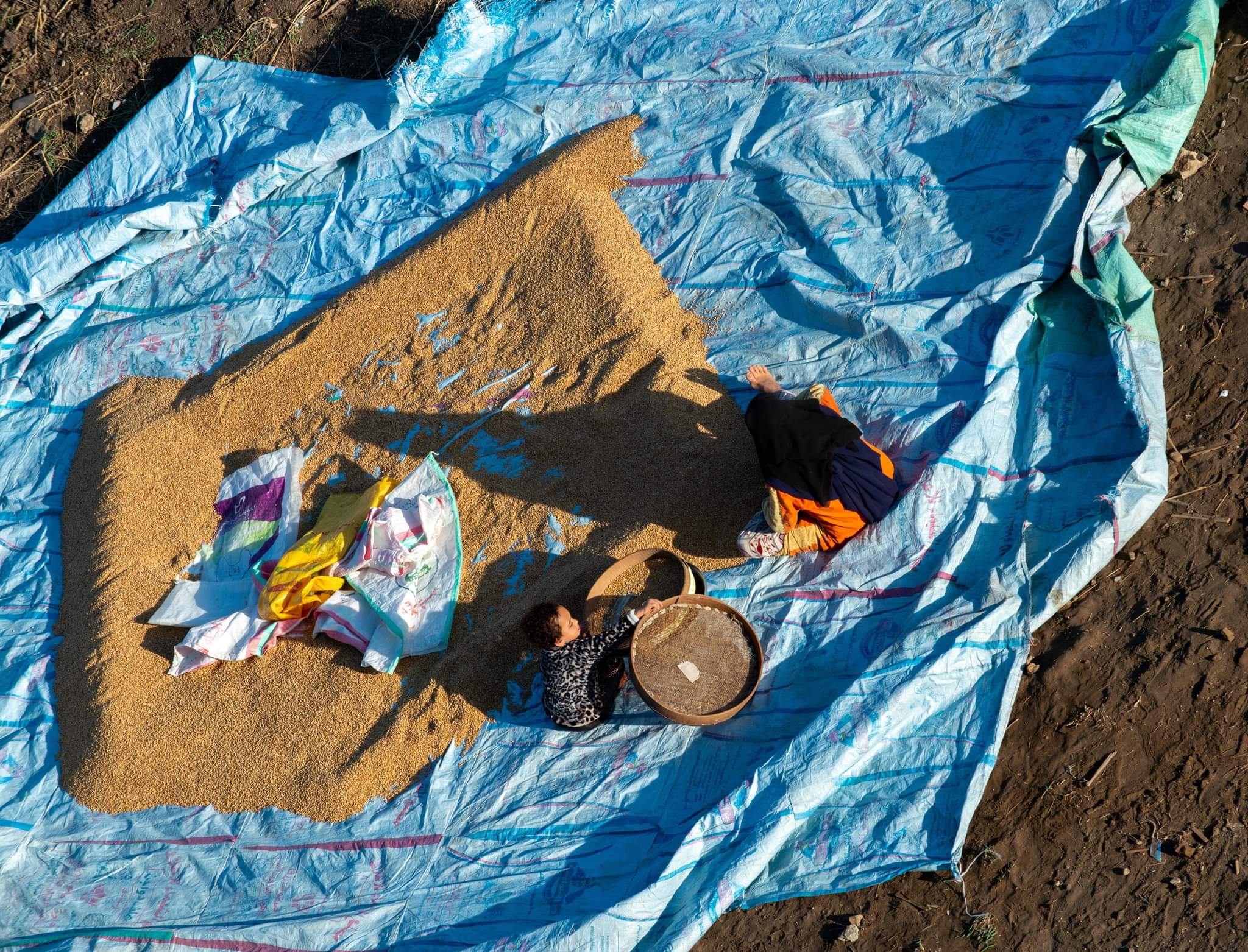
“Hard-working without any material or moral compensation”
Sondos, 37, got married at the age of 17. She found herself in the midst of a “big family” that owns agricultural land and a livestock farm, consisting of more than 35 people.
She was required to serve the male members of the family, take part in field work and look after the livestock, in addition to household chores and “serving” her husband.
“I got up every day at two in the morning, went straight from the bed to the family home. I cleaned it and went to the cattle farm to milk the livestock, feed them and sweep their feces, twice a day. Then I go home and make breakfast, feed the men and children of the family, and, while they are eating, I finish preparing lunch. I have breakfast in a hurry before I go to the cart that takes us to the land to participate in agricultural work or harvesting crops in order to save up on the costs of hiring a worker, as my mother-in-law used to say.” This is how Sondos begins and ends her day.
She explained that the same routine was shared with the wives of her husband’s six brothers. She added, “When there is no work for us women, we churn cheese and butter from milk, and one of us goes to sell what has already been prepared. While others go to sell some of the vegetables that we harvest in stages. And two wash the clothes of the whole family, and so on.”
Neither Sondos nor any of the other wives received any wages for these daily labors. And they did not get “leaves,” except for one day a month for each of them to visit their families. And when the property was inherited by the male family members, no share was taken into account for the wives, knowing that they had participated in the development of this property for about 15 years before the inheritance.
“None of what we did was met with thanks or even appreciation,” she said. “None of us were allowed to keep any money from selling the milk, cheese or vegetables that we were involved in at every stage. The complaint of any of us about fatigue or exhaustion due to the large number of work was met with indifference.”
This is what led Sondos to develop rheumatism after suffering from continuous pain in the bones, and she recounts that the doctor was surprised that she had this disease before she was even thirty years old.
She concluded by saying: “I lost my health in this endless cycle of forced labor (unpaid work). But this is how rural women are, always hard-working without any material or moral compensation.”
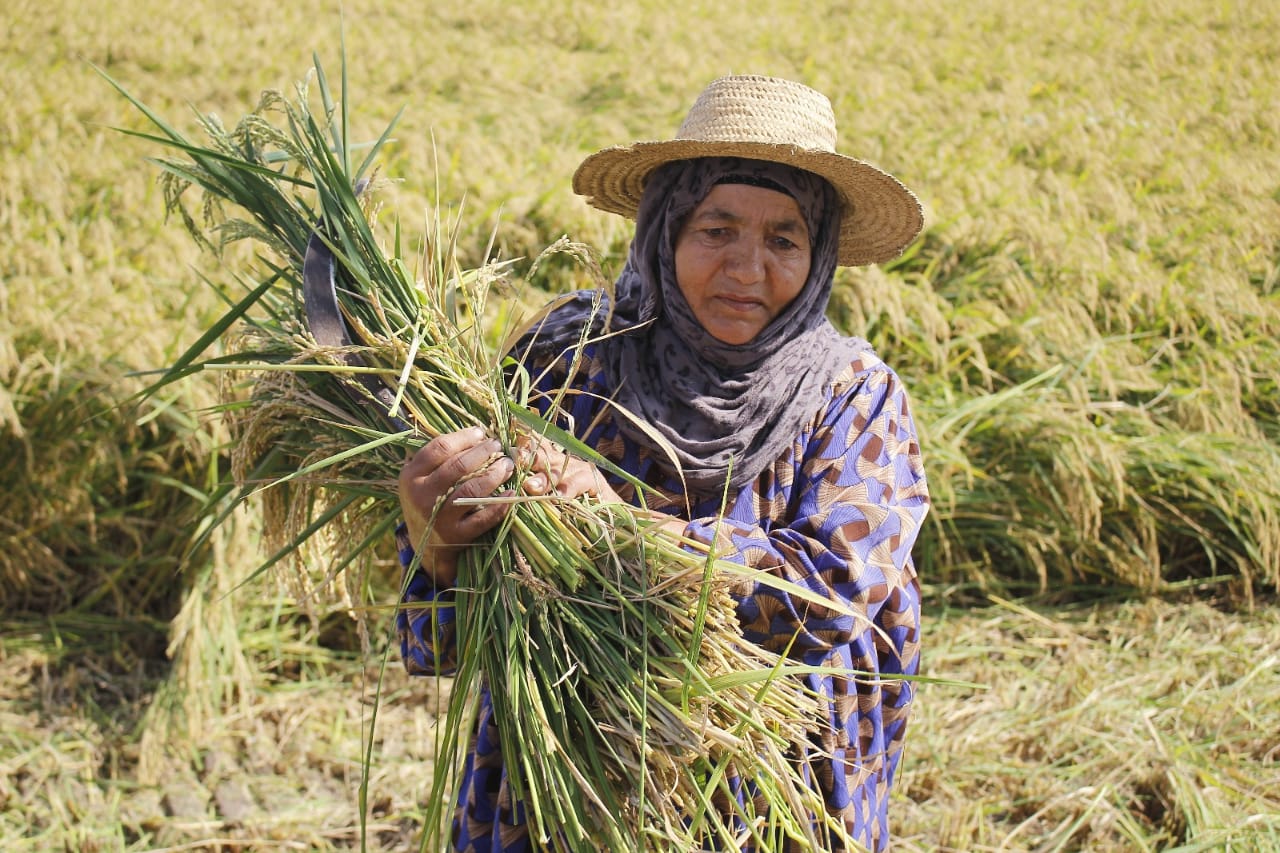
The need for “direct awareness”
Regarding the conditions of Egyptian rural women, the president of the “Women for Development” Association and a member of the National Council for Women in Egypt, Jomhouriya Abdel Rahim, indicated that “the National Council for Women, in cooperation with civil society organizations concerned with women, are at the same time providing educational and service activities, food baskets and programs protecting battered rural women and providing them with material assistance.”
It also provides them with programs to eradicate illiteracy, facilitate women from marginalized groups to obtain identity papers, train them on small projects, and other vital matters.
However, she acknowledges that “structural, behavioral and societal problems impede the improvement of the conditions of rural women, including unpaved roads, the lack of public transportation in villages, the availability of clean and safe drinking water, and sanitation services.”
To these obstacles she also added cheap or unpaid labor, and the vulnerability of rural women and girls to domestic violence from a husband, father or brother. Their wages or inheritance are taken by force.
And forcing them to drop out of education, with a disparity in wages between women and men for the same work.”
Rural women, in their diverse roles, which are sometimes unpaid or recognized, including farming, harvesting, raising livestock, selling fruits, fishing and caring for the family, are essential agents of change and the fight against poverty and hunger around the world, and in our Arab region in particular.
However, these roles can only bear fruit by providing justice for rural girls and women, ending all forms of discrimination against them, and achieving equality between them and men.

